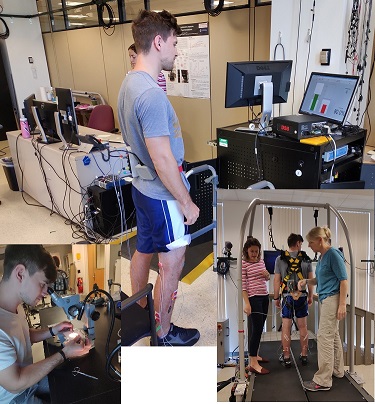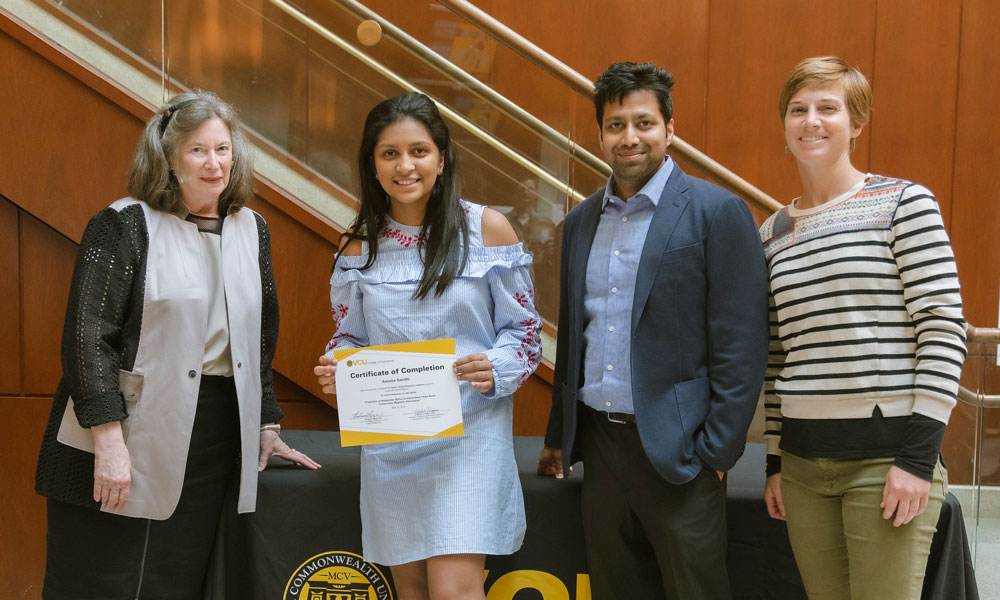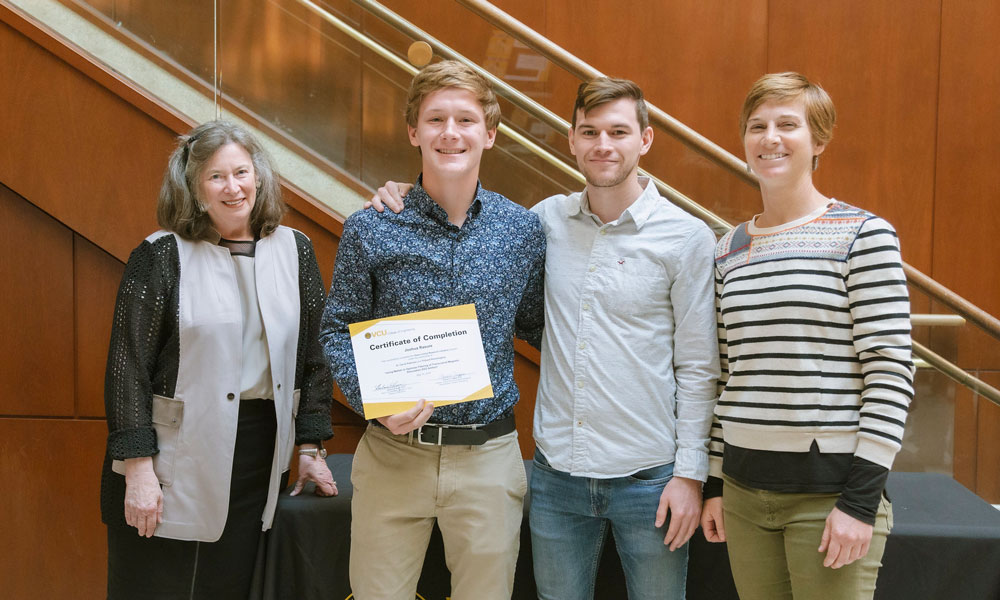Fun Memories
July 8-26, 2019
Thibault Roumengous receives training in adaptive neurotechnologies in Albany, NY at the National Center for Adaptive Neurotechologies Summer Short Course sponsored by the NIH.


May 15, 2019
The REALab celebrates the previous year high school student researchers and mentors, and welcomes new students through the Dean’s Early Research Initiative Program. See pictures from the DERI poster session and ceremony.

From left: Dean Boyan, Amisha Gandhi, Neil Mittal, Carrie Peterson

From left: Dean Boyan, Joshua Rasure, Thibault Roumengous, Carrie Peterson
April 26, 2019
Congratulations to Alaysha Shearn, Gifty Gracious-Ross, Jay Sprangler, and Mohammed Almutawa on presenting their senior design prototype at the Capstone Design Expo! Dr. Peterson served as their faculty adviser on a project to design a quick release hand grip for adaptive rowing, in particular for athletes with spinal cord injuries.
VCU seniors in biomedical engineering (left to right) Jay Sprangler, Mohammed Almutawa, Alaysha Shearn and Gifty Gracious-Ross do research at the boathouse to understand adaptive rowing and the needs of athletes with neuromuscular impairments. This team worked on a year-long project sponsored by Sportable to create a prototype quick release hand grip to improve the safety of adaptive rowing.


Other photos from BMES 2018

Dr. Peterson, VCU graduate students, and the Atlanta skyline.

Blaize Majdic, Neil Mittal, and Dr. Peterson present their study titled “Effect of intermittent theta burst stimulation on biceps corticomotor excitability.”

Thibault Roumengous and Paul Howell present their study titled “Cutaneous stimulation and arm posture modulate biceps responses to transcranial magnetic stimulation.”